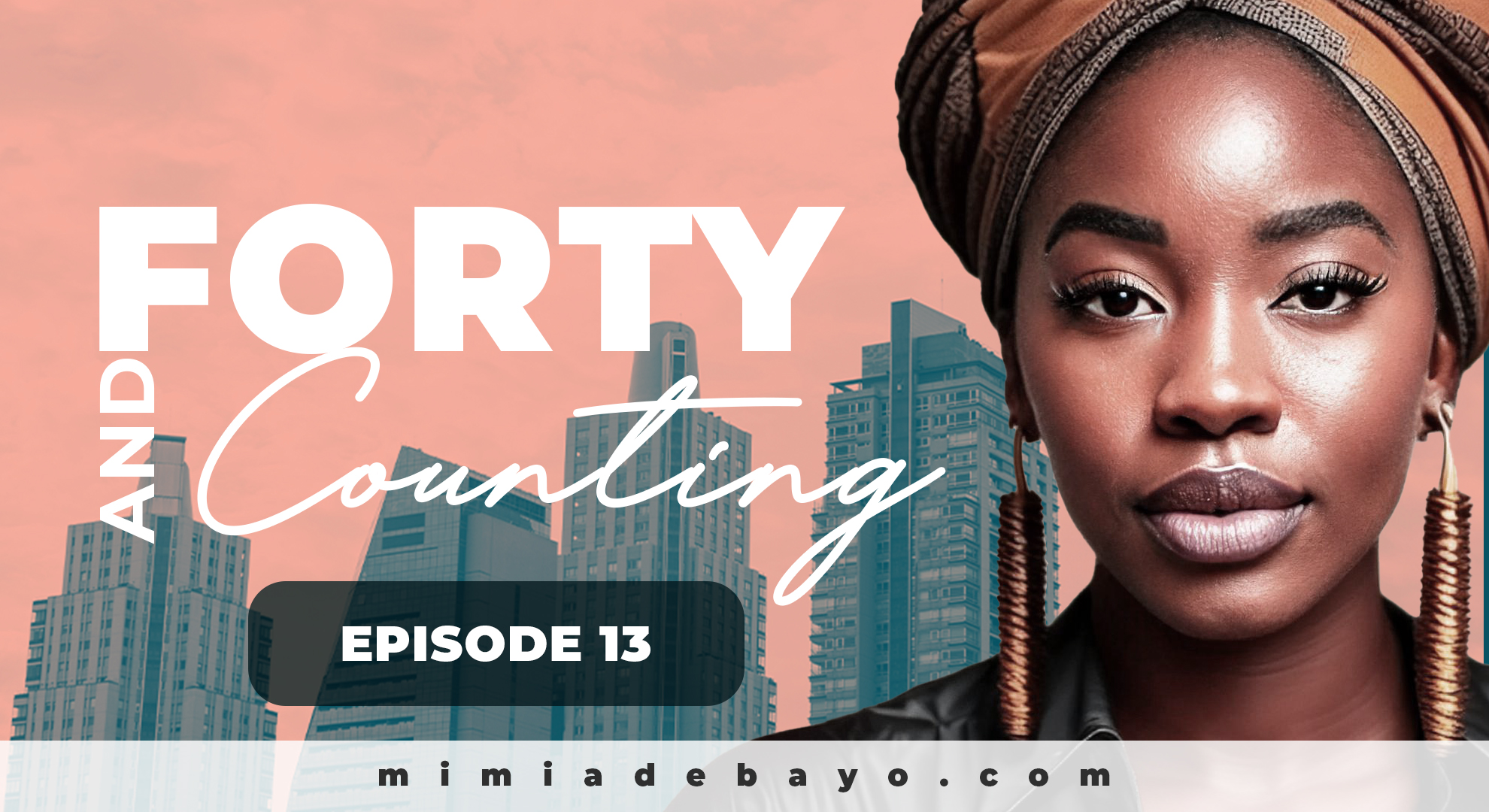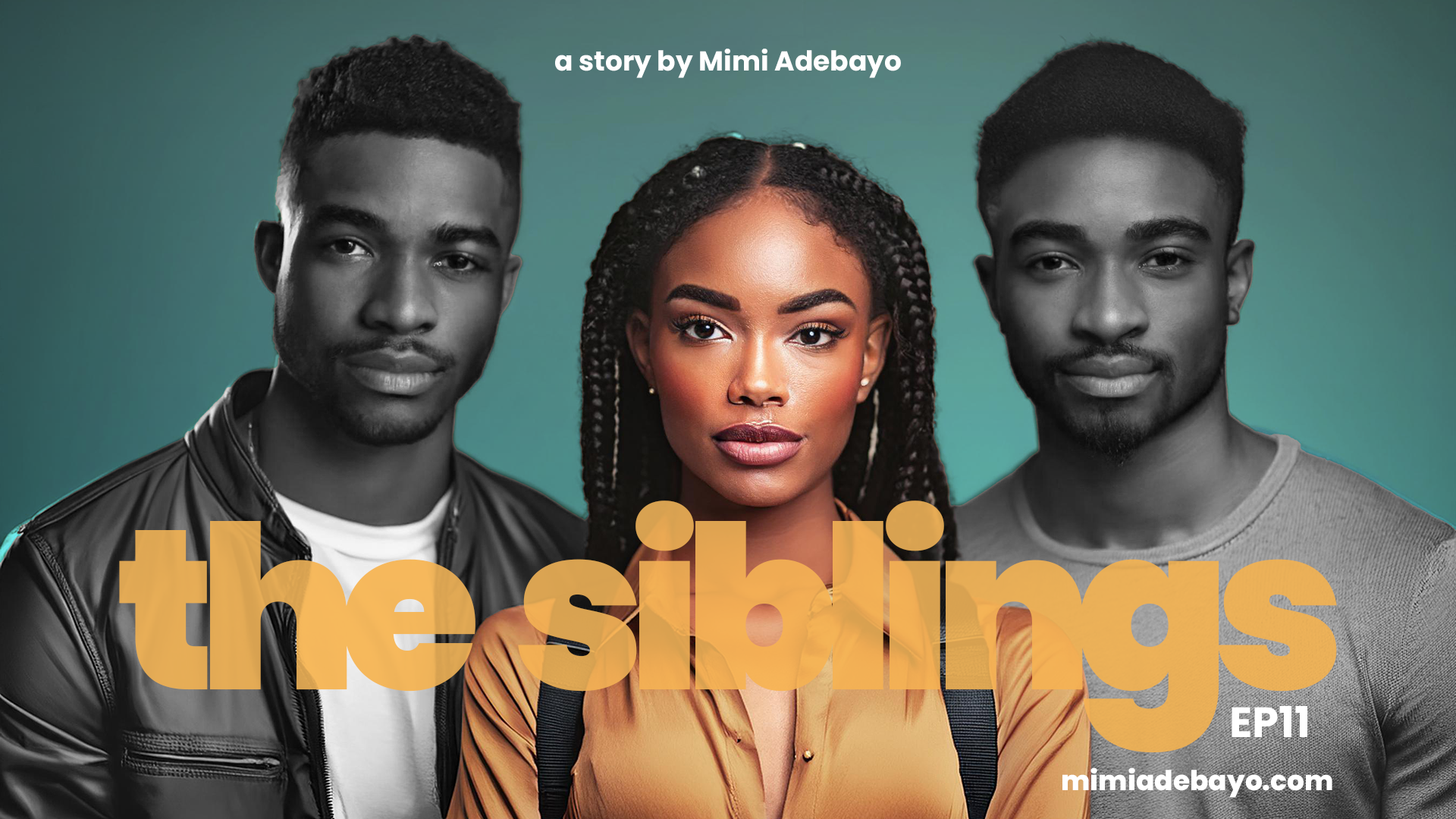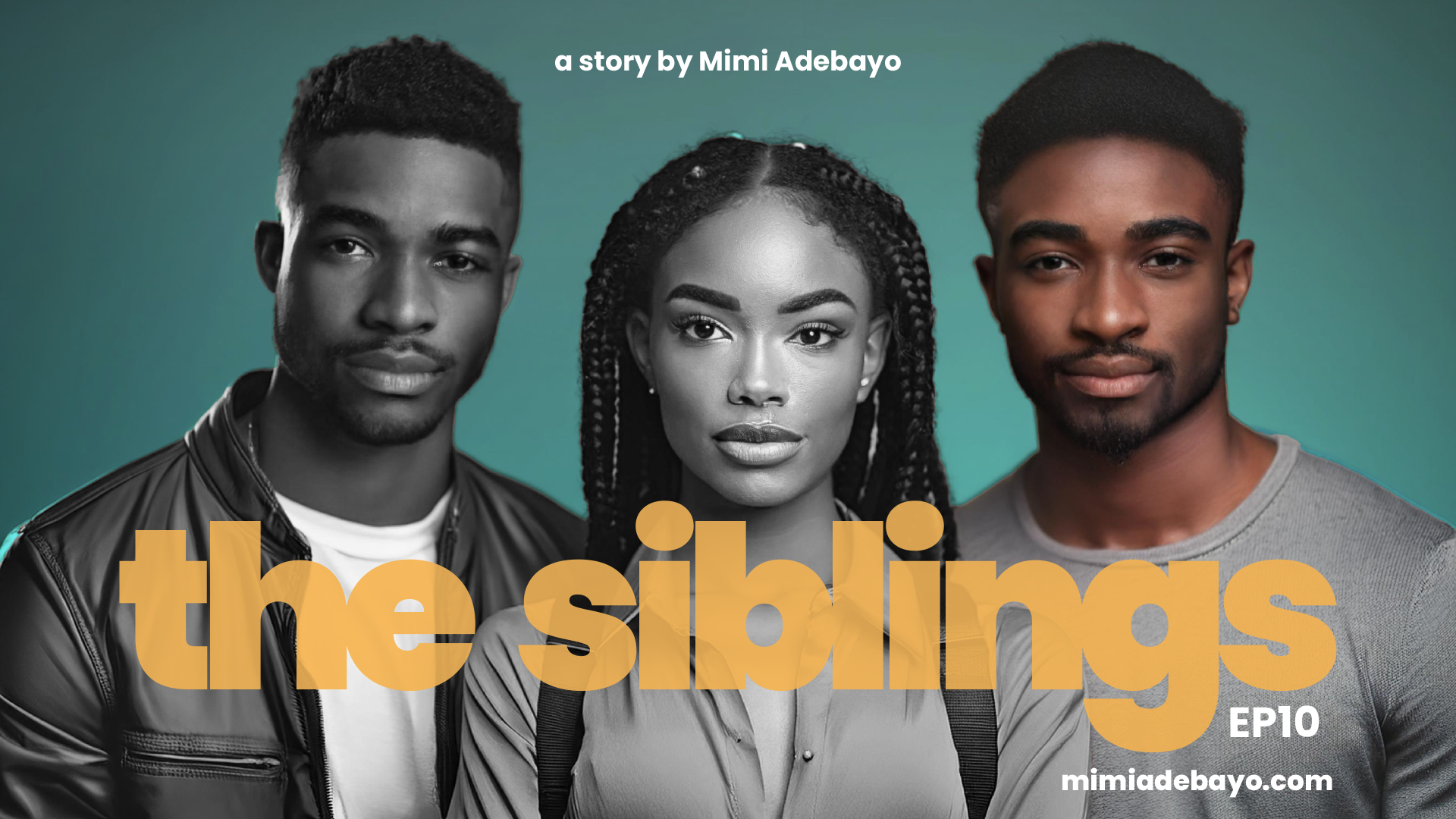Imade had not been sleeping well. And she knew why.
It had been three days since she last saw Pastor Dapo, since she almost had an unnecessary breakdown, and three days since she spoke to him. She had ignored the nudging of the Holy Spirit to reach out and apologize.
Shame, not pride was her reason for refusing to reach out. Every time she recalled her behaviour that day, fresh shame washed over her.
Because, what would she say? What was there to say, even? Why had she reacted the way she did, like he was the enemy?
“Call him,” Yvonne said, without preamble, when she told her three days later.
“And say what?” Imade asked.
“Just apologize. I’m sure he would be understanding.”
“Babe, I practically walked him out of the restaurant that day. I’m ashamed, abeg. Let’s just leave it. I mean, I won’t be in Benin too long so I may not have to see him again.”
“You see this thing you’re doing? It’s how Satan keeps us from God’s forgiveness. Shame mixed with pride is what stops us from going back to God when we’ve messed up.”
“Please madam. Don’t preach to me. This is different.”
“You know I will always tell you as it is. I’m just doing what you would do for me.”
Imade sighed, stretching underneath the covers. She loved how cozy the blankets at the hotel were, so her favourite place to be whenever she was in, was underneath, the blankets pulled up to her chin, the TV producing white noise.
“Or…I have an idea,” Yvonne said, as something rustled in the background.
“What?”
“Go to his church. It might show him that you really feel bad about what happened.”
“Hmm…not a bad idea at all. Especially as I didn’t really have plans for Sunday before. I wanted to stream service. Flesh and blood did not reveal this to you.”
Yvonne laughed, “okay, now that’s settled. Tell me, is he married?”
“Yvonne!”
“What? I am asking for a friend.”
“What friend?” Imade chuckled. “Anyway, I don’t know. I should think so. We didn’t get to talk about it.”
“Oya, is he handsome?”
“Okay, I can neither confirm nor deny that,” Imade said. “Besides, don’t you have to go to bed or something?”
“I’ve tucked Olive in. Hubby is watching football in the parlour, so I’m free as a bird to torment you.”
“Oh, God,” Imade mock-groaned.
“So, tell me about the project. How is it going?”
Imade smiled, happy to change the subject. She had been going to the orphanage everyday since she arrived and she was enjoying getting to know Mrs Osakwe better, and understand the operations of the orphanage.
It was a small outfit with barely enough hands and funds to keep it running smoothly. Mrs Osakwe said they paid the few full-time staff with the donations that came in from The Heritage church, and other charity organizations. The full-time staff, three women in total, doubled as nannies, teachers and cooks.
“The local school gives free education to our primary-aged children,” Mrs Osakwe had said. “It’s not the best education, but it is better than nothing. They learn to read and write, which is the most important thing.”
“Do the older children often get adopted?” Imade had asked. They were standing in the verandah, from there she watched the children who were in the common area, sitting in groups, eating their lunch, and chatting. The younger children sat on a table with two of the nannies who were taking turns feeding them or coaxing them to eat.
“Not nearly as much as the younger ones. Parents often want younger children, plus the older ones are sometimes already set in their ways, it is difficult to break them in to a new setting and a new family.”
“But do they want to get adopted?”
“I think every child wants to be part of a conventional family. This, what we have here…doesn’t really count. They desire a mother and father figure. They desire normalcy and no matter how much we try to keep them fed and cared for, there is nothing normal about us. Nothing normal about any of this.” Mrs Osakwe swept her hands towards the children sitting cross-legged on the mat, her voice low.
“What about…mental health? Does it…does this life affect their mental health?”
Mrs Osakwe smiled a sad smile. “If you had asked this question three years ago maybe, I would have shushed you. I would have said God forbid or warned you not to bring that talk to my side. But…three years ago Beauty attempted suicide.”
Imade remembered Beauty, the chatty bow-legged girl who always made it a duty to say hello to her whenever she came around.
“Yes,” Mrs Osakwe said. “It’s hard to believe. She’s always excited, always talking, asking questions, seeking answers. But we had no idea she was dealing with depression at the time. Depression, ha.”
“How old was she then?”
“She was eight plus. But she was profoundly unhappy and kept hiding behind the chatty façade. She had questions about her parents, who she was, why she was…lots of questions. But instead of answering them, we shushed her. We told her to forget about it, that it was not important to know. We were so unlearned, so naïve.” Mrs Osakwe shook her head at the memory.
“How…how did she do it?”
“Paracetamol. We have a medicine cabinet in the kitchen. We used to keep it locked, but she stole the key and stole three cards of paracetamol.”
“Three?”
Mrs Osake squeezed her eyes, the memory playing before her. “I was so scared when we found her. One of the other children found her in bed, throwing up after ingesting sixteen tablets. Imade, it was like I was losing my children all over again. I carried her in my arms…rushed to the hospital. I couldn’t stop screaming.”
Imade flicked a glance at Beauty, who was at that moment talking with Sunshine, while shoveling one spoonful of white rice after another into her mouth.
“We had a volunteer child psychologist with us at the time. She offered to see her for a while. It was she who told us the diagnosis. Depression. You can imagine how it sounded to me. What did an eight-year-old child have to be depressed about? Wasn’t depression a white man’s sickness? How had it located us in our small part of the world? Imade, I was afraid and confused. A child almost died under my watch. How had I not noticed the signs? After that incident, I took a short online course on Mental Health for kids, how to notice the signs.”
The story chilled Imade to the bone. That day, she had gone back to the hotel and written down Therapist/Psychologist as one of the key people needed for the orphanage. As she recounted the story to Yvonne, she felt the emotions threaten to shut down her throat.
“It’s heartbreaking,” she said to Yvonne. “The things these children go through. The struggles. The questions, especially as they grow older.”
“Oh my God. I can’t stop picturing Olive. Oh my God. What is it like to start dealing with depression at such an early age?”
“I know!” Imade agreed. “And if you meet Beauty, she’s such a delight to be with. Very friendly, curious, bubbly.”
“I’m so proud of you, babe. You’re doing a great work out there.”
Imade let the praise warm her. “Thank you,” she said.
Dapo’s church – The Heritage Church – held their services by 9am, Mrs Osakwe told Imade, right before she gave her directions to the church.
After many twists and turns from the bus, to the keke she boarded, Imade arrived at her destination at twenty minutes past nine. The church’s billboard big enough to be seen, but small enough not to cause a nuisance, stood on one end of the parking lot and beside it, a man in a grey suit, directing cars to the parking spot.
Imade didn’t know what she had been expecting, but certainly not the big white building with blooming hibiscus flowers giving the entrance to the church a fresh, garden-y look. She was reminded of the scripture he makes me to lie down in green pastures…as she strolled into the building. She was greeted by a smiling woman wearing an usher tag on her chest and a smart black gown that hugged her curves.
“Welcome to church,” the woman said to her smile. “This way, please.”
Her right arm was outstretched, pointing to another usher who stood further down the aisle. And like that, Imade found herself sitting in the fourth row, next to a woman who kept tapping her phone and a man who kept throwing annoyed glances at the woman with the phone.
The ambience within the church reminded Imade somewhat of her home church in Abuja, with the rotating lights, and the bronze flower pots that stood guard at each end of the altar. She scanned the area for Pastor Dapo but did not spot him until later, when he went up the stage to lead the second set of prayers.
“We’re still praying,” he said, tapping his Bible lightly, looking out at them.
Under the bright lights, Imade had to admit, he looked more dapper than he had when she saw him days ago. He was dressed in a navy-blue suit that fit his body snugly, was sporting a new haircut and a shave. The phone-pressing woman beside her looked up from her phone when he began to sing, his voice ringing clearly through the microphone.
Imade’s breath caught. Wait, what? Dapo could sing?


